The politics of Croatia are defined by a parliamentary, representative democratic republic framework, where the Prime Minister of Croatia is the head of government in a multi-party system. Executive power is exercised by the Government and the President of Croatia. Legislative power is vested in the Croatian Parliament. The Judiciary is independent of the executive and the legislature. The parliament adopted the current Constitution of Croatia on 22 December 1990 and decided to declare independence from Yugoslavia on 25 May 1991. The Constitutional Decision on the Sovereignty and Independence of the Republic of Croatia came into effect on 8 October 1991. The constitution has since been amended several times. The first modern parties in the country developed in the middle of the 19th century, and their agenda and appeal changed, reflecting major social changes, such as the breakup of Austria-Hungary, the Kingdom of Serbs, Croats and Slovenes, dictatorship and social upheavals in the kingdom, World War II, the establishment of Communist rule and the breakup of the SFR Yugoslavia.

President is a common title for the head of state in most republics. The president of a nation is, generally speaking, the head of the government and the fundamental leader of the country or the ceremonial head of state.

A semi-presidential republic, or dual executive republic, is a republic in which a president exists alongside a prime minister and a cabinet, with the latter two being responsible to the legislature of the state. It differs from a parliamentary republic in that it has a popularly elected head of state; and from the presidential system in that the cabinet, although named by the president, is responsible to the legislature, which may force the cabinet to resign through a motion of no confidence.
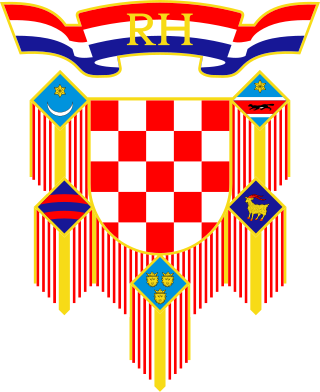
The president of Croatia, officially the president of the Republic of Croatia, is the head of state, commander-in-chief of the military and chief representative of the Republic of Croatia both within the country and abroad. The president is the holder of the highest office in Croatia. However, the president is not the head of the executive branch as Croatia has a parliamentary system in which the holder of the post of prime minister is the most powerful person within the country's constitutional framework and everyday politics.

The prime minister of Croatia, officially the president of the government of the Republic of Croatia, is Croatia's head of government, and is de facto the most powerful and influential state officeholder in the Croatian system of government. Following the first-time establishment of the office in 1945, the 1990–2000 semi-presidential period is the only exception where the president of Croatia held de facto executive authority. In the formal Croatian order of precedence, however, the position of prime minister is the third highest state office, after the president of the Republic and the speaker of the Parliament.

Stjepan "Stipe" Mesić is a Croatian lawyer and politician who served as President of Croatia from 2000 to 2010. Before serving two five-year terms as president, he was prime minister of SR Croatia (1990) after the first multi-party elections, the last president of the Presidency of Yugoslavia (1991) and consequently secretary general of the Non-Aligned Movement (1991), as well as speaker of the Croatian Parliament (1992–1994), a judge in Našice, and mayor of his hometown of Orahovica.

Ivica Račan was a Croatian politician who served as Prime Minister of Croatia from 2000 to 2003, heading two centre-left coalition governments.

The Social Democratic Party of Croatia is a social-democratic political party in Croatia. The SDP is anti-fascist, progressive, and strongly pro-European. The SDP was formed in 1990 as the successor of the League of Communists of Croatia, Croatian branch of the League of Communists of Yugoslavia, which had governed Croatia within the Yugoslav federation since World War II.

The President of Serbia and Montenegro was the head of state of Serbia and Montenegro. From its establishment in 1992 until 2003, when the country was reconstituted as a confederacy via constitutional reform, the head of state was known as the President of the Federal Republic of Yugoslavia. With the constitutional reforms of 2003 and the merging of the offices of head of government and head of state, the full title of the president was President of Serbia and Montenegro and Chairman of the Council of Ministers of Serbia and Montenegro. In 2006 the office was abolished as the state union was dissolved, with Serbia and Montenegro becoming independent countries and was followed by Kosovo in 2008 although it received limited international recognition.
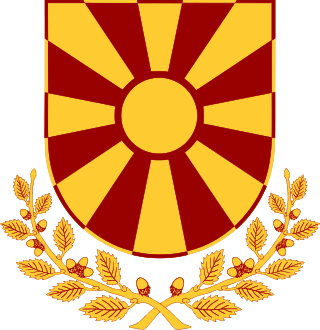
The president of the Republic of North Macedonia is the head of state of North Macedonia.
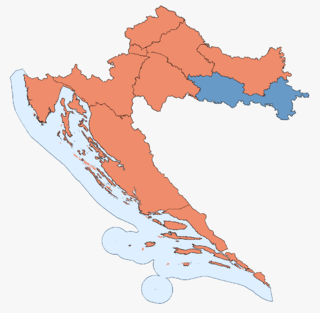
Parliamentary elections were held in Croatia on 3 January 2000 to elect members of the Chamber of Representative. They were the first elections to be held after the expiration of a full four-year term of the previous Chamber of Representatives.

The Politics of Serbia are defined by a unitary parliamentary framework that is defined by the Constitution of Serbia in which the president, currently Aleksandar Vučić, is the head of state while the prime minister, currently Ana Brnabić, is the head of government. Executive power is exercised by the Serbian government and the President of Serbia. Legislative power is vested in the unicameral National Assembly which is composed of 250 proportionally elected deputies. The judiciary is independent and is headed by the Supreme Court of Cassation, which is also the highest court in Serbia.

The Speaker of the Parliament of the Democratic Socialist Republic of Sri Lanka is the presiding officer of the chamber. The current Speaker of the Parliament is Mahinda Yapa Abeywardena, in office since 20 August 2020. The Speaker fulfills a number of important functions in relation to the operation of the House, which is based upon the British Westminster parliamentary system.

The Presidency of the Socialist Federal Republic of Yugoslavia was the collective head of state of the Socialist Federal Republic of Yugoslavia. It was established in 1971 according to amendments to the 1963 Constitution and reorganized by the 1974 Constitution. Up to 1974, the Presidency had 23 members – three from each republic, two from each autonomous province and President Josip Broz Tito. In 1974 the Presidency was reduced to 9 members – one from each republic and autonomous province and, until 1988, President of the League of Communists of Yugoslavia ex officio.
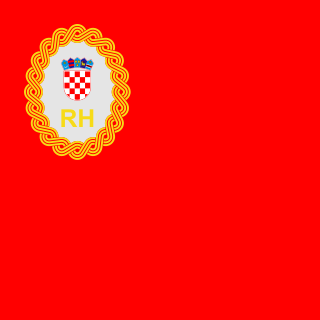
The speaker of the Croatian Parliament is the presiding officer in the Croatian Parliament, Croatia's legislative body.

Elections were held on municipal, provincial, republican and federal levels in Yugoslavia from its foundation in 1918 throughout its breakup in 1992.
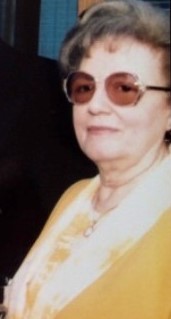
Ankica Tuđman was the wife of Franjo Tuđman, the first President of an independent Croatia from 1991 until 1999, following the country's secession from SFR Yugoslavia, and the last President of the Presidency of SR Croatia as a constituent Yugoslav republic.
The Socialist Republic of Croatia, one of the constituent countries of the Socialist Federal Republic of Yugoslavia had gone through a number of phases in its political life, during which its major political characteristics changed - its name, its top level leadership and ultimately its political organization.

























